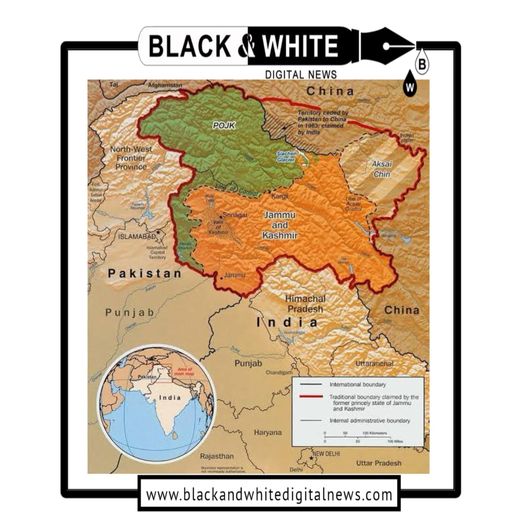Free Us From The Muslim-Majoritarian Politics Of The Valley” — Dogra, Pandit Groups Renew Call for Jammu Statehood and ‘Panun Kashmir
||Black and White Digital News ||
||September 12,2024 ||
Jammu& Kashmir: Since the abrogation of Articles 35A and 370 in August 2019, which bifurcated Jammu and Kashmir into Union Territories (UTs) of Jammu-Kashmir and Ladakh, the demand for Jammu statehood has simmered beneath the surface. Many Dogra and Kashmiri Pandit groups feel that the political dynamics post-reorganization have not addressed their core concerns — the dominance of “Muslim-majoritarian politics” from the Kashmir Valley, which historically shaped policies under the National Conference (NC) and People’s Democratic Party (PDP) regimes.
Origins of Statehood Demand:
The push for Jammu’s separate statehood comes from deep-rooted perceptions of political and economic marginalization. Advocates argue that Jammu, despite representing a majority of the population and land in the erstwhile state, has been sidelined in terms of representation and resources. Groups like IkkJutt Jammu, led by Advocate Ankur Sharma , and the Duggar Saddar Sabha have been vocal in their call for statehood to protect Jammu’s distinct identity and shield it from what they see as Kashmir-centric governance.
Ankur Sharma expressed disappointment over the outcomes of the 2019 reforms, stating that Jammu continues to face political dominance from the Kashmir Valley. This dominance, he claims, has perpetuated underdevelopment and now, rising security threats in regions south of the Pir Panjal range. Sharma’s view is that resources funneled into Kashmir often end up sustaining militancy, leaving Jammu vulnerable and neglected.
Trifurcation Proposal and Panun Kashmir:
One of the key proposals from these groups is the trifurcation of the Union Territory into three distinct entities: Jammu as a separate state, Kashmir divided into two regions, and a special homeland for Kashmiri Pandits — referred to as Panun Kashmir . This demand for Panun Kashmir, championed by Dr. Agnishekar , reflects the anguish of the Pandit community, which was displaced in the 1990s due to militant violence. According to Dr. Agnishekar, the Indian state failed to protect the Kashmiri Pandits, and Panun Kashmir would offer them a secure homeland within their cultural heartland, such as parts of Srinagar, Anantnag, and Baramulla.
Dr. Agnishekar has long argued that Pandits are “refugees in their own country” due to the failure of the state to protect them from Islamic terrorism. The creation of a Pandit-majority territory, he believes, would rectify decades of injustice.
Local Sentiments and Challenges:
Conversations with locals in Jammu reveal mixed reactions. While the idea of statehood resonates with certain groups, the broader population seems more focused on immediate concerns like employment, security, and equitable development. Many traders and residents in Jammu feel that while Kashmir’s volatility has attracted political attention, their own economic and developmental aspirations have been neglected.
Despite the abrogation of Article 370, which many hoped would bring parity, Jammu residents claim that resources and jobs continue to disproportionately benefit Kashmir. Moreover, the recent **delimitation exercise** based on the 2011 census has deepened grievances, with Jammu receiving four fewer assembly seats than Kashmir (43 to 47), reinforcing the perception that political power still resides in the Valley.
Declining Momentum and Future Outlook:
While groups like IkkJutt Jammu continue to push for statehood, the momentum has slowed, and the issue is unlikely to be a decisive factor in upcoming elections. As Ankur Sharma noted, despite lingering support for statehood, there has been insufficient grassroots mobilization to make it a dominant political issue.
For the upcoming elections, the people of Jammu are more concerned with tangible issues such as job creation, security, and better governance. While the call for statehood and the creation of Panun Kashmir remains alive, it is no longer at the forefront of Jammu’s political landscape, overshadowed by more immediate, everyday concerns.
The demand for Jammu statehood and Panun Kashmir reflects not only a regional identity struggle but also a broader desire for fair representation and autonomy. As elections draw nearer, these voices may resurface, but the future of Jammu as a separate state remains uncertain.



